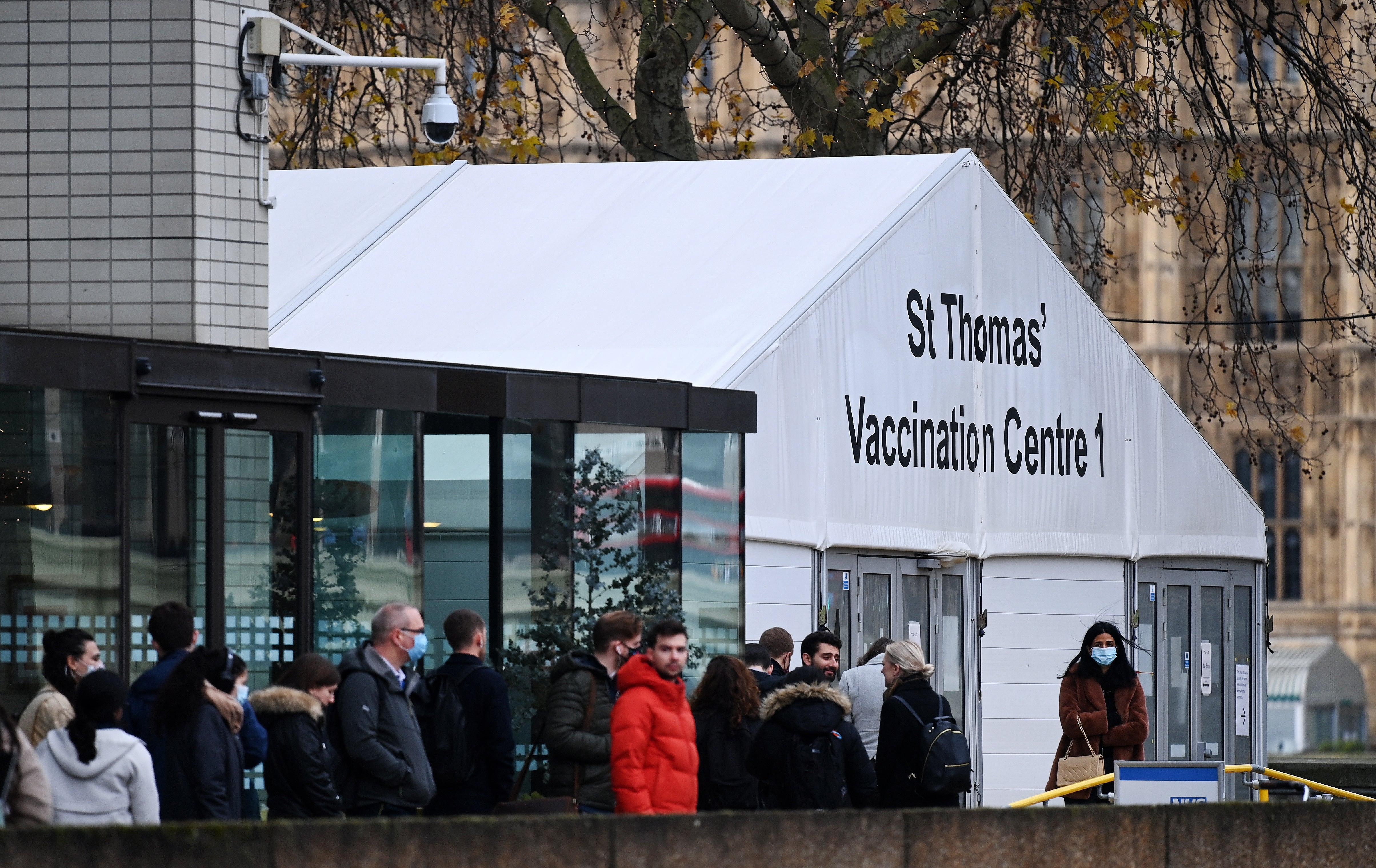UK omicron cases estimated at 200,000 infections every day, Sajid Javid says
It comes as the NHS’ Covid alert level was raised to four, the highest possible level

The number of daily Omicron infections in the UK has been estimated as being at 200,000, Sajid Javid has said as he warned omicron cases are going to “dramatically increase”.
On Monday the UK Health Security Agency said the number of daily Covid infections was estimated to be 200,000, based on its modelling, while the NHS’ Covid alert level was also raised to four, the highest possible level.
Speaking in the House of Commons on Thursday health secretary Sajid Javid said: “It’s vital we remember that hospitalisations and deaths lag infections by around two weeks so we can expect those numbers to dramatically increase in the days and weeks that lie ahead.
He told MPs there are now 4,713 cases of Omicron in the UK adding: “the UK Health Security Agency estimates that the current rate of, the current number of daily infections are around 200,000. “While Omicron represents over 20 per cent of cases in England, we’ve already seen it rise to over 44 per cent in London and we expect it to become the dominant Covid 19 variant in the capital in the next 48 hours.’’
He said the UK’s four chief medical officers had raised the Covid alert level to four, its second highest level during the weekend, while on Monday the NHS has announced it had raised its alert level to the highest “level four national incident.”
Mr Javid said: “This means the NHS response to Omicron will be coordinated as a national effort rather than led by individual trusts.”
The NHS’ highest alert level is four, it is separate to the Government’s Covid-19 Alert level which is a scale of one to five. During the second Covid-19 wave the NHS triggered level four on 5 November 2020.
The NHS’ latest action comes as The Independent reported on Sunday hospital trusts have been asked to surge their critical care capacity due in anticipation for Covid-19 pressures hitting ICUs within the next few weeks.
On Sunday the prime minister announced the government intended to bring forward its deadline to offer booster covid-19 vaccines to all adults from January 31 to December 31. He admitted routine NHS care would have to take a hit over the next month.
NHS hospitals and GPs are awaiting national guidance from NHS England as to how the plans will be implemented. Senior healthcare sources confirmed they were told on Sunday hospitals would be able to only carry out urgent operations from next week if necessary, in an aid to speed up the booster programme.
Today the reports surfaced of people waiting hours in queues for a Covid-19 booster jab, as the NHS national booking system crashed.
During a webinar Emily Lawson, NHS England’s vaccine tsar and chief medical officer Chris Whitty addressed staff regarding the new vaccine drive.
Sources who were on the call told The Independent they were told by leaders Omircon was doubling every “two to three days” and the NHS anticipated the highest peak would be in just a few weeks.
Clinical commissioning group staff and NHS admin staff are due to be redeployed to work on the vaccine efforts.
NHS Leaders confirmed to staff the Medicines Healthcare Products Regulatory Authority were reviewing current guidelines which require patients to wait for 15 minutes after their vaccine, but were told no decision had been made yet.
Speaking in the commons Sajid Javid said he will have “more to say’’ soon on the 15 minute wait issue.
In a statement on Monday the British Medical Association, a union for doctors, said: “The BMA is calling for the Government to rethink its policy on vaccine passports based on being double vaccinated. Omicron has shifted the goalposts with studies showing you need the booster to be sufficiently protected against this new variant.
“The NHS is severely understaffed, which means that delivering a mass booster programme as well as treating surges in Covid infections while simultaneously maintaining normal services, appointments, and treatments is potentially impossible – and Government must face the reality of that. General practice in particular is facing significant workforce shortages, meaning GPs and their teams cannot do everything for everyone all at the same time.”
Join our commenting forum
Join thought-provoking conversations, follow other Independent readers and see their replies
Comments
Bookmark popover
Removed from bookmarks